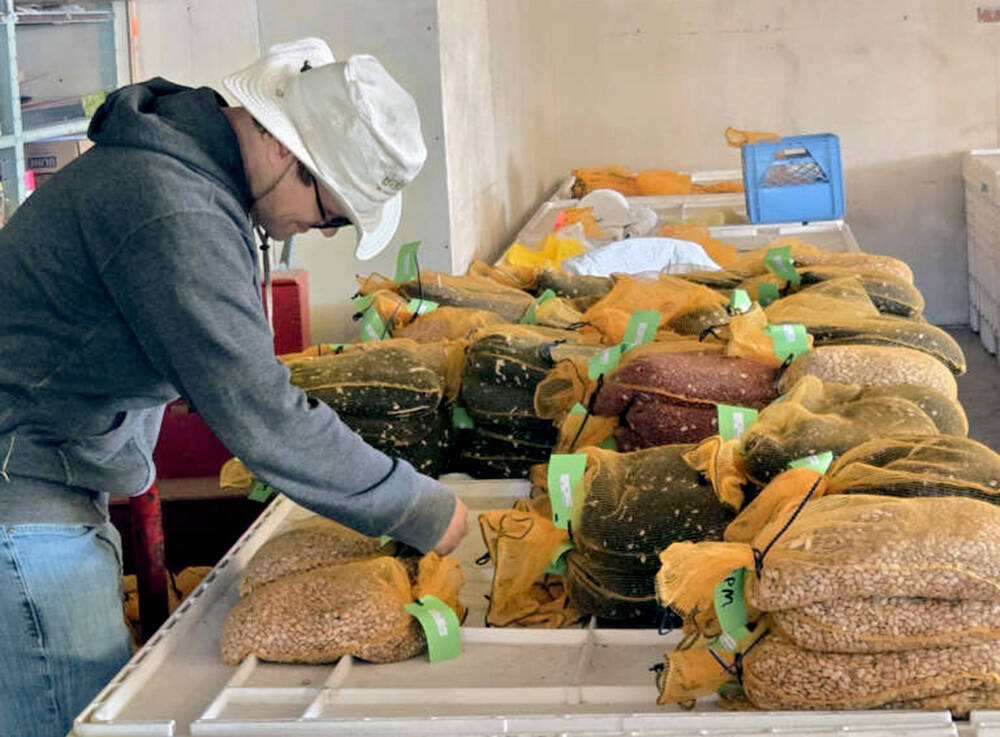COVID-19 has affected farmers and agri-businesses across all sectors of the agriculture industry. Provincial and federal governments are providing funding and options for producers as they deal with the pandemic’s effects.
Why it matters: Some agriculture and food systems are struggling during COVID-19, especially farm and processing labour.
Tax filing
The Canadian Revenue Agency has extended the deferred payments and income tax due dates.
For individual income tax, the filing date for 2019 tax year has been extended to June 1, 2020 with the payment date being extended to Sept. 1, 2020.
Read Also

Bean research breeds community giving
University of Guelph dry bean researcher Dr. Mohsen Yoosefzadeh Najafabadi champions sustainability by donating surplus breeding program beans to support food security and community art initiatives.
For self-employed individuals with a spouse or common law partner, the filing date remains the same at June 15, 2020, with the payment date for 2019 tax year being extended to Sept. 1, 2020.
For corporations, the filing date for taxes has been extended to June 1, 2020 with the payment date for the current tax year being extended to Sept. 1, 2020
Work sharing
Canada’s work-sharing programs is an adjustment program to help employers and employees avoid layoffs when there is a temporary reduction in the normal level of business activity beyond the control of the employer.
The employer and the employees must agree to participate in a work-sharing agreement and must apply together.
The agreement must be submitted a minimum of 30 days prior to the requested start date.
The program is possible for employees eligible for Employment Insurance benefits who work a temporarily reduced work week.
More information can be found at the Government of Canada website along with an application guide.
CEWS
The Canadian Emergency Wage Subsidy (CEWS) is a temporary wage subsidy for employers that aim to prevent further job losses, and want to re-hire previous lay offs as a result of COVID-19.
The program will cover up to 75 per cent of an employee’s salary, on the first $58,700 earned.
Individuals, taxable corporations and partnerships consisting of eligible employers may be qualified if there was a drop of at least 15 per cent of revenue in March 2020 and 30 per cent for the following months.
To apply, eligible employers can apply through Canada’s Revenue Agency’s My Business Account portal. It’s imperative that employers keep records demonstrating their reduction in arm’s-length revenues and remuneration paid to employees.
10% wage subsidy
Businesses which do not qualify for CEWS may be eligible for the 10 per cent remuneration paid from March 18 to June 20, 2020.
It’s a three-month program which allows employers to reduce the amount of payroll deductions required to be remitted to the CRA.
Eligible employers are individuals, partnerships or Canadian-controlled private corporations who are eligible for a small business deduction.
They must have an existing business number and payroll program with the CRA on March 18, 2020.
For more details visit the FAQ page at the Government of Canada website.
Foreign workers
On April 13, the federal government announced $50 million to assist famers who rely on workers from abroad.
The workers who are coming in from out of country are required to isolate for 14 days, this may become costly for the producer.
The government is providing support in the form of $1,500 for each temporary foreign worker, employers or those who are working with them to ensure proper isolation protocols are met.
For more information visit ‘Keeping Canadians and workers in the food supply chain safe‘ at the Government of Canada website.
FCC loans
The federal government has provided an enhancement to Farm Credit Canada’s capital base that will allows for an additional $5 billion in lending capacity.
FCC asks existing customers with cash flow or other financial concerns to contact the organization to discuss alternatives, such as loan payment deferrals and
products available to assist with cash flow needs.
FCC is using the money to provide additional support options, which may include:
- A deferral of principal and interest payments for six months or a deferral of principal payments for up to 12 months
- Access to an additional credit line of up to $500,000
The credit line option is a 24-month credit line up to $500,000 at a rate of Prime plus one per cent and no fees.
FCC says it’s important to contact your local office or the Customer Service Centre as each situation is different and each application is done on a case-by-case basis.
Along with these programs there are other new programs put in place by the provincial and federal government. For more information visit: https://ofa.on.ca/resources/summary-of-government-financial-assistance-for-ontario-farm-businesses.
There are other existing government programs for producers, such as Ontario’s Risk Management Program, Ontario/Canada’s Agri-Invest Program, Canada/Ontario’s Agri-Stability Program (which has had its deadline extended until July 3, 2020) , Canada/Ontario’s Production Insurance Program and Ontario’s Food Donation Tax Credit for Farmers. As well, the Canada Summer Jobs Program will pay for 100 per cent of summer student employment this year, including for farms, although the deadline has now passed.













